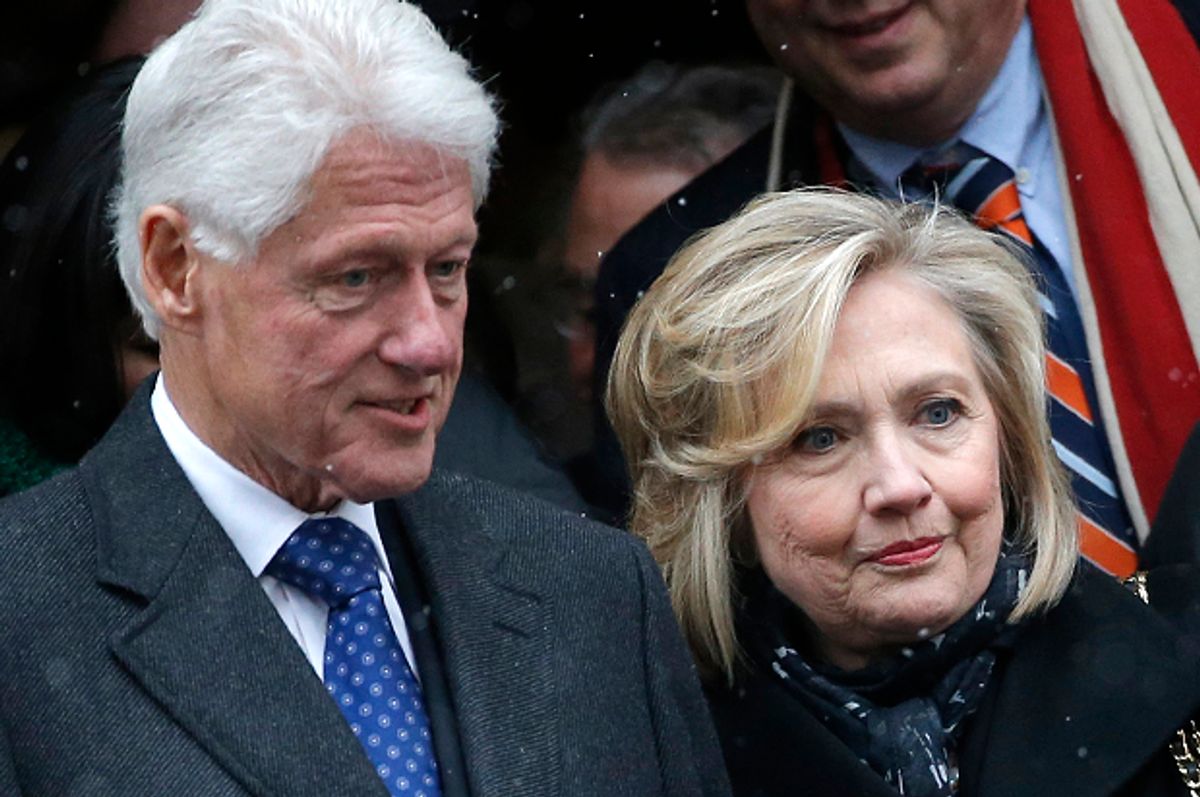Watch Hillary Clinton in the debates or in interviews, and she’s confident, focused, and seems ready to be president. But a long-building wave may be cresting, and it could do real damage to Clinton’s chances. A new New York Times story describes Lena Dunham – who enjoys a heavy following from both Millennials and Gen X voters – going back and forth on the issue of Hillary Clinton’s behavior during her husband’s sex scandals in the ‘90s. The whole thing, which turns on what sounds like ambivalent behavior by Dunham, has the potential to go radioactive. It’s also, at the very least, troubling no matter where you sit politically.
The Times piece describes what sounds like a Fox News parody of the “cultural elite” – an Upper East Side dinner party hosted by HBO’s chief executive, at which Dunham expressed being shaken by the Clintons’ behavior in the '90s. (The setting has already caused smart people to dismiss the argument as just more of the paper’s obsessive Dunham reporting.) Here's how the Times out the issue:
The conversation, relayed by several people with knowledge of the discussion who would speak about it only anonymously, captures the deeper debate unfolding among liberal-leaning women about how to reconcile Mrs. Clinton’s leadership on women’s issues with her past involvement in her husband’s efforts to fend off accusations of sexual misconduct.
The issue emerged last month when Mrs. Clinton accused the Republican presidential candidate Donald J. Trump of having a “penchant for sexism” and he in turn accused her of hypocrisy, given her husband’s treatment of women. And in recent weeks, the scandals of the 1990s and Mrs. Clinton’s role in them have taken on a life of their own, delivering an unexpected headache to a campaign predicated on inspiring female voters.
Dunham, needless to say, is in a tricky spot here. As a feminist on the progressive side of the aisle, she wants to help a woman get elected, but can she do that while tacitly endorse the trampling of other women? The indecisive quality of Dunham‘s “Girls” character is part of her charm, and it’s easy to empathize with that brand of confusion. But this is real life, and backing and forthing won’t work for much longer, especially with the relentless Donald Trump on the war path and her self-appointed role as a symbol of a certain kind of left-leaning urbanite.
Is it possible for Dunham to have it both ways — to talk about the challenges women face and not take seriously women who have claimed to have been sexually harassed? Maybe she thought so. But playing it down the middle won’t last much longer, and it won’t last much longer for Hillary Clinton, either. Even if no new evidence comes out, this has the potential to derail Clinton’s campaign and further damage the couple’s already fraught reputation.
The ‘90s, in a lot of ways, was another era when it comes to gender and sexual harassment. The voters born around that time see things differently than Boomer and even Gen X women did at the time — and even, in some cases, still do. The idea of a woman president sounds nice to young voters, but does not cover a the full multitude of sins: They define “progressive” differently.
They’re shaped by things like the legacy of the Anita Hill/Clarence Thomas scandal, attention to campus rape, more serious workplace harassment laws, the debate over Woody Allen’s relationship to Soon-Yi Previn. They can’t understand why the world looked the other way over allegations against Bill Cosby for so long. By the time the Cosby accusations broke into general awareness, their worldviews had already veered from their parents' pretty significantly.
Hillary can try to move into the campaign ignoring the white noise or dismissing this issue as old news and find herself both morally compromised and kissing off younger women. And this goes beyond gender and generation: Even some people ready to vote for her, who like her politics, don’t quite trust her. There's more at stake here than a campaign, even — if she engages, she could lose her marriage. But she needs to risk saying goodbye to Bill for the sake of being honest.
Until we know what took place between Bill and Paula Jones, Juanita Broddrick, and others, and how Hillary now sees her role in defending Bill against the rumors, allegations and his culpability in his affair with Monica Lewinsky, it’s hard to be any more specific than I’ve been here, and we’re left mostly with questions. But this part is clear: This not just about damage control, it’s the decent thing to do. And it can’t just be spin or triangulation. Aside from Bill himself, Hillary Clinton is the person most likely to know what actually happened, and whatever she knows, she’s got to be direct and straightforward about it. Trump was right about Ted Cruz’s “New York values” line – Hillary can’t let him be right about this, too.


Shares